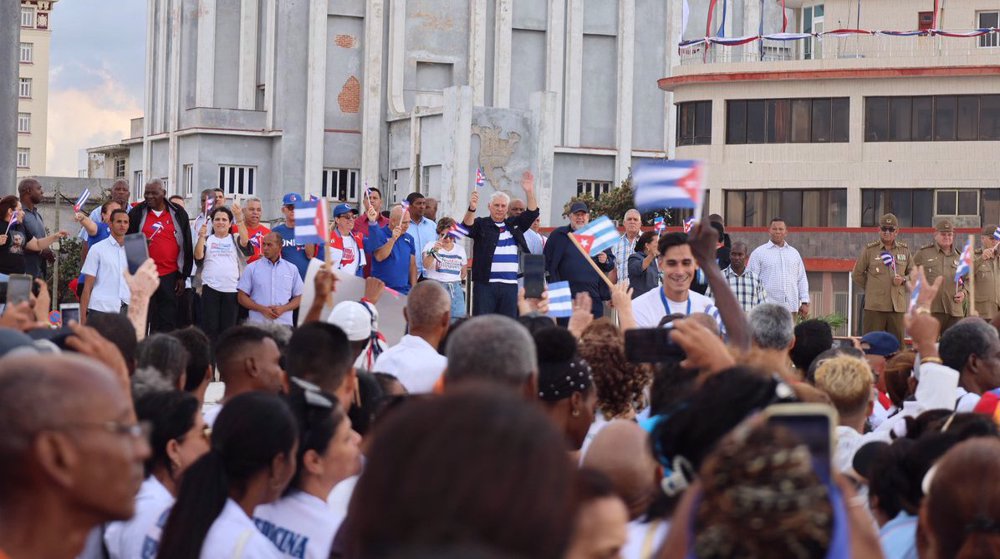Cuba’s President Castro criticizes Trump over partial reverse in détente
Cuban President Raul Castro has criticized as a “setback” US President Donald Trump’s hard-line stance against Havana but also promised to continue working to normalize ties between the two countries.
In an address to Cuba’s National Assembly on Friday, Castro also criticized Trump’s June announcement of a partial rollback of the Cuba-US reconciliation deals achieved under former US President Barack Obama.
“The announcements made by the current president... mean a setback in bilateral relations,” Castro said, adding that Trump was using “old and hostile rhetoric” and had returned to “confrontation that roundly failed over 55 years,” referring to the period before the 2016 reconciliation when Washington and Havana had no relations.
The US president said last month that he would tighten restrictions on US travelers to Cuba and also on business dealings with the Caribbean island nation. Trump, however, left many of Obama’s reforms in place, including the establishment of diplomatic relations.
Describing his measures as a move against a “cruel and brutal” country, Trump had said progress on bilateral relations would depend on concessions related to human rights issues.
In his Friday speech, Castro said, “We reject the manipulation of the topic of human rights against Cuba, which can be proud of much in this area, and does not need to receive lessons from the United States nor anyone.”
“Any strategy that seeks to destroy the revolution, whether through coercion or pressure or through subtle methods, will fail,” he added, referring to the Cuban revolution led by his late brother, Fidel Castro.
The 86-year-old president, however, said Havana and Washington could cooperate and coexist.
“Cuba and the United States can cooperate and live side by side, respecting their differences. But no one should expect that for this, one should have to make concessions inherent to one’s sovereignty and independence,” Castro noted.
Castro has seven months to go before his term as president ends but he will remain the head of the country’s Communist Party.

Castro has previously criticized Trump, accusing him of undertaking policies that are “irrational” and “egotistical.”
The United States broke off diplomatic relations with Cuba in 1961 and placed an official embargo against the country in 1962. The two countries became ideological foes soon after the 1959 revolution that brought Fidel Castro to power, and their ties remained hostile even after the end of the Cold War.
Obama re-established diplomatic relations with Havana in 2015 and loosened some restrictions on doing business in the country during his tenure in the White House. He also offered illegal Cuban immigrants a path to legal status and opened travel to the island nation.
‘Ethnic cleansing’: Hamas blasts Israeli attacks on Gaza hospital amid intl. silence
Saudi delegation meets HTS leader at presidential palace in Damascus
Relentless Israeli ceasefire violations justify need for self-defense: Lebanese MP
Tel Aviv tells Damascus Israeli forces will remain in occupied territory: Report
Dec. 22: ‘Axis of Resistance’ operations against Israeli occupation
‘Abhorrent’: Oxfam says only 12 trucks delivered aid in North Gaza since Oct.
VIDEO | Leader receives religious eulogists on Hazrat Fatima birth anniv.
Pope Francis slams Israel’s ‘machine-gunning’ of Gaza children










 This makes it easy to access the Press TV website
This makes it easy to access the Press TV website